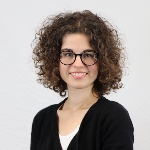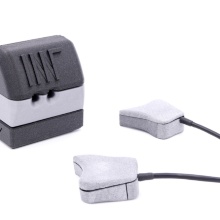Motivation
Congenital central hypoventilation syndrome (CCHS) is a rare congenital disorder whose main characteristic is a decreased respiratory drive. To ensure sufficient oxygen supply for the body, patients must be ventilated during sleep and monitored by trained personnel.
Within the scope of the WakeMe project, a mobile app-based wake-up system is developed that is worn behind the ears during the day, continuously measuring oxygen saturation. If the user falls asleep and the oxygen saturation drops as a result, the device immediately wakes them up through an acoustic signal and vibration. The mostly young patients are thus enabled to have a more normal youth and to lead a more independent, freer and safer everyday life, in which a nap on the train no longer poses a health risk.
Problem definition
In order to achieve this goal and develop a system that actually makes everyday life easier, the wearer must not be seen merely as a "scaffold" for the device; conversely, the system must adapt to the patient's needs both anatomically and in terms of appearance and handling. During the project, special attention is paid to the issue of fail-safety: As a future medical device, the WakeMe system must be as small and inconspicuous as possible on the one hand, but demonstrably reliable and safe on the other. All this requires well thought-out solutions that are mature from both a technical and a medical point of view.
Objective
At the Institute of Medical Device Technology, technical and medical expertise come together, which is why researchers at the IMT, supported by the Eva-Mayr-Stihl Foundation, are developing prototypes of the wake-up system and evaluating them together with those affected. The WakeMe system is to be made available to patients by industrial partners.
Further links

Peter P. Pott
Prof. Dr. rer. nat. habil.Head of the Institute

Juliane Mayer
M.Sc.Research assistant



